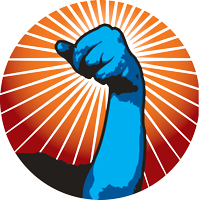02 Mar Vaccinating the unworthy
Psarah Johnson
Vaccinating the “Unworthy”
What is our main objective with this vaccine? What is the tangible result we hope to see? Is it to get back to normal at all costs, no matter how high? Or is it to ensure the health and safety of the common good? Subconsciously, many of us have answered this question, even if we can’t admit it. Even to ourselves. Because the truth is most of us just want our Normal back and we are willing to step on a lot of backs to get there.
We want to go out for coffee with friends like Normal. We want to see new movies being released and we’d like to see those movies in theaters with our friends like Normal. We’d like to rub up against sexy, sweaty stranger in the club like Normal. We’d like the chance to take that same stranger home later like Normal. Okay, so maybe there’s no such thing as Normal. Normal is subjective. And that’s why I hate the rhetoric about returning to Normal. For an alarmingly large but forgotten percent of the population, this past year has felt more Normal than ever. And for that same alarmingly large but forgotten population the vaccine seems unattainable.
Since the beginning of COVID-19, a lot has been written about the effect this pandemic would have on disabled folks. We knew this group would be disproportionately susceptible to catching COVID-19 and were most likely to have more serious or lethal cases. For awhile it even looked like we cared about these people. There were special shopping hours for elderly and disabled folks. Many companies instated free delivery programs. Suddenly Zoom opened the world to people with disabilities who could now attend operas, meet with their representatives “face to face,” work from home, etc.
Yup. This last year has felt so much like the Normal I’ve always needed, asked for, and all too frequently been denied. For everyone bitching about screen fatigue, another is embracing the ability to engage in arenas that have been inaccessible. Now, with the rollout of this vaccine, those of us with disabilities have again become optional, expendable. There has been little mention of how, when, or even if disabled folks will be vaccinated.
This simple two-sentence inquiry presents a number of dismaying realities. 1) it is not a forgone conclusion that people with disabilities deserve basic human rights. 2) only those currently making money for the Nursing Home Lobby are worth vaccinating. 3) nobody, not the ACLU, understands how to prioritize people with disabilities.
That last one legitimately is a conundrum. We could have some sort of disability registry and have it noted on state issued ID’s but I’m pretty sure the Nazis tried that, admittedly with a malignant intent. So, it’s not surprising that disabled folks are reluctant to try that again! We could require a doctor’s verification but, A) that does nothing to help the unsheltered, undocumented, uninsured, underinsured, or undiagnosed and, B) many doctors have already proven there is an inherent if unintentional bias against disabled folks. The disability rights community is rife with stories of doctors refusing to prescribe mobility aids, such as wheelchairs, or sign SSDI forms. “If you have a wheelchair (say to help conserve joint health), you’ll get lazy.” “If you go on Disability you’ll just give up and die.” These are both actual quotes heard by patients from doctors.
The real solution to the problem is actual, systemic change in the way we see disabilities. The first step, and I’m so tired of repeating this, is to start seeing disability. At all. Anywhere. The good, the bad, and the ugly. By normalizing disability, the first thing we do is remove the stigma, the ignorance, and the shame. The second is, of course, talking about disability, and by that, I mean listening. Did anyone, even once, bother to ask Tiny Tim what his thoughts were on Dickensian health care or the pitfalls of “employer-based health insurance?” The third step is so simple I’m embarrassed to have to call attention to it. Start believing disabled folks. We don’t need to be saved, fixed, pitied, or told we’re pretty, brave, special, cute or inspiring. We just need to be believed. If we say ‘it hurts,” it hurts. If we say “we can’t,” we can’t. Conversely, if we say “we’re fine,” we’re fine and if we say “we can,” we can. And if we say it’s none of your damn business, it’s because you haven’t earned our trust, so go away and start working on your listening skills.
It is exhausting that 30 years after the passage of the ADA, disabled folks are still asking for a seat at the table. Our society is unable to prioritize the need for a vaccine for people with disabilities, let alone formulate a plan for distribution precisely because they haven’t involved us in the conversation. We’ve waited long enough for inclusion and we deserve it.


